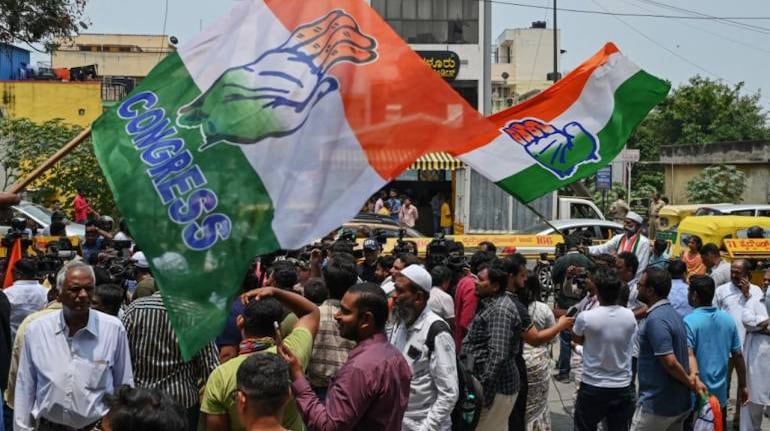



As Chhattisgarh gears up for its upcoming assembly elections, the ticket distribution by the Congress party has been a matter of scrutiny and debate ever since 22 sitting Congress MLAs were dropped, unprecedented in Congress history in recent times. In the 2018 assembly polls Congress had won 68 seats in the 90-member assembly.
Those dumped include a former minister Prem Sai Singh Tekam. The event is significant in Congress history as the party drops very few sitting legislators fearing revolts. With surveys suggesting that chief minister Bhupesh Baghel is popular but there is anti-incumbency against sitting MLAs, the party had no choice but to go in for surgical actions.
What is without doubt is that the contests in these 22 seats will now become among the most keenly watched in the state. A positive result may even see Congress adopt a similar tack in other states going forward. In a similar move, the BJP has denied tickets to 25 of its previous contestants who had fought in the last election. But BJP is known for such actions, having dropped all its sitting MPs from Chhattisgarh in the 2019 Lok Sabha elections.
Influence Of Top Leaders
But the ticket distribution process in both parties also reflects the influence of key leaders within the parties. In the BJP, Dr Raman Singh's influence is evident, while in the Congress, Chief Minister Bhupesh Baghel enjoyed prominence.
Deputy CM TS Singhdeo, a member of the Central Election Committee, has wielded his influence in several seats, like in the case of Brihaspati Singh in Ramanujganj, where the BJP has fielded the prominent tribal leader and former MP Rajya Sabha, Ramvichar Netam. Netam appears to be a strong contender in that seat.
The decision to assign the Jagdalpur seat, the only general seat in the Bastar region, to the party's former mayor, Jitin Jaiswal, has raised enthusiasm among political observers. This choice was made despite the presence of Bhupesh's close associate, Raju Sharma, who was also a contender for the ticket. It seems that Jaiswal got the prize for being in Singhdeo’s “good books”.
The influence of senior Congress leader Charandas Mahant, who is also the Speaker of the outgoing assembly, influence in the ticket distribution is evident in the Janjgir Belt constituencies.
Caste Is Key
But the ticket distribution exercise of both parties also foregrounded the importance of caste. In the 2018 assembly elections, the Congress had fielded seven candidates from the Sahu community. However, for the 2023 elections, they have increased the number to nine Sahus, perhaps mindful of Sahu anger over the killing of Bhuneshwar Sahu.
On the other hand, the BJP, which had fielded 14 Sahus and seven Kurmis in 2018, has opted for 11 Sahus and 8 Kurmis this time. Congress has fielded nine Kurmis this time. In the plains, the highest number of candidates come from the Sahu and Kurmi communities. Both the Sahus and the Kurmis are the dominant OBC groups in the state
Further, Congress has nominated eight Brahmins, while the BJP has given tickets to six Brahmin candidates. Furthermore, 18 women will be contesting on Congress tickets, while the BJP has nominated 15 female candidates.
Keeping Factions Happy
In both Congress and BJP, there were senior leaders who were trying to get tickets for their family members but only senior Congress leader and former minister Satyanarayan Sharma, who hung up his boots, succeeded in securing a ticket for his son Pankaj Sharma. Pankaj’s political work on the ground in Raipur Gramin for the last 15 years is said to have benefitted him in getting the ticket.
In the Rajnandgaon constituency, Baghel's close friend, Girish Dewangan, who was Congress general secretary before 2018, will contest against ex-CM Raman Singh. Dewangan, who hails from Dharsiwa near Raipur, faced scrutiny from the Enforcement Directorate in connection with an alleged coal scam. He also holds the position of chairman at the Chhattisgarh Mineral Development Corporation. Even the Congress leaders are clueless on the question of what made the party field Dewangan from Rajnandgaon.
This ticket distribution strategy by the Congress may not align with the traditional INC model but nor can it be called as a Bhupesh Baghel model. While the primary goal appears to be increasing the chances of victory, it's clear that different factions within the party have influenced the ticket allocation process, leading to maneuvering and challenges in several seats.
Among the 20 seats which are going for election in the first phase, only one sitting MLA denied the ticket has rebelled. Anup Nag, MLA from Bastar's Antagarh Seat, has filed his nomination independently.
Some Congress strategists had earlier suggested that nearly 30 tickets were initially intended to be denied, but this number was reduced to 22 to maintain internal party stability, indicating that the party finally struck a balance between necessary changes and internal harmony.
Harsh Dubey is a political commentator based in Raipur. Views are personal, and do not represent the stance of the publication.
Discover the latest Business News, Sensex, and Nifty updates. Obtain Personal Finance insights, tax queries, and expert opinions on Moneycontrol or download the Moneycontrol App to stay updated!